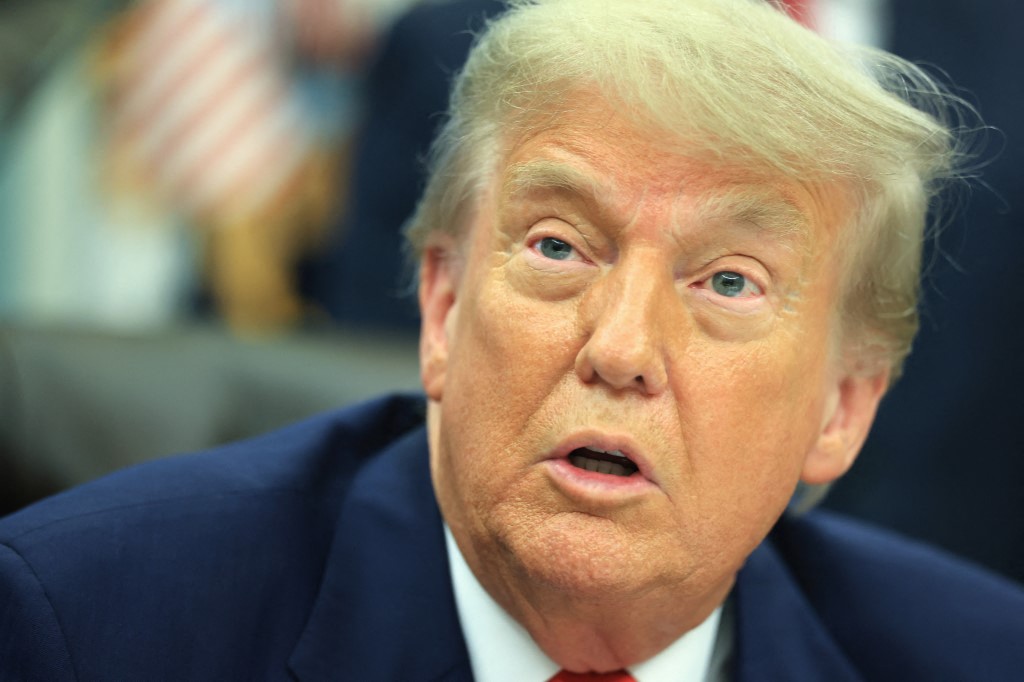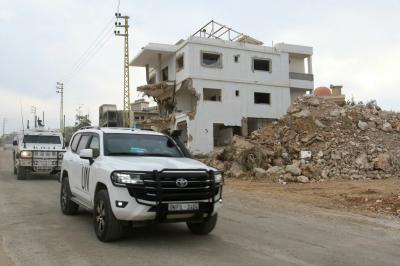The recent Israel-Iran 12-day war, which triggered U.S. military intervention, represents a significant escalation in a long-standing regional rivalry with profound implications for global geopolitics.
The conflict erupted on June 13, 2025, when Israel launched a series of attacks targeting Iranian nuclear and military facilities. Israel views Iran's nuclear program, coupled with its long-range missile capability, as an "existential threat." Iran retaliated by firing hundreds of missiles and drones into Israeli territory, overwhelming Israel's air defenses.
This war marks a pivotal shift as Iran moved from proxy warfare to direct engagement with Israel. Israel wants to comprehensively degrade Iran's nuclear, missile, and proxy capabilities. It carried out cyberattacks against economic targets to undermine regime stability. The war also exposed vulnerabilities in Iran's defenses and Israel's operational freedom within Iranian airspace.
U.S. Military Intervention
On orders of President Donald Trump, U.S. bombers dropped bunker-busting ordinance on three Iranian nuclear sites: Fordow, Natanz, and Isfahan. This direct U.S. military entry into the war signaled Washington's commitment to preventing Iran from acquiring nuclear weapons. Trump claimed the strikes "obliterated" Iran's nuclear program and threatened further attacks if Iran retaliated.
The U.S. intervention followed pressure from Israel and its supporters in Washington. However, the strikes immediately provoked Iranian missile attacks on a U.S. base in Qatar. Trump subsequently brokered a ceasefire between Israel and Iran, mediated by Qatar, which took effect on 24 June.
Trump's strategy was a risky gamble: a heavy military strike followed by swift diplomatic efforts to de-escalate. Nevertheless, the effectiveness of the strikes in dismantling Iran's nuclear program remains disputed.
Russia’s Role?
Russia adopted a cautious and calculated stance. President Vladimir Putin seeks to maintain relations with all parties to avoid further international isolation and position Russia as a potential mediator. Moscow's ideal outcome would be a ceasefire it could broker, enhancing its global stature and diverting attention from its war in Ukraine.
Russia avoided direct military support in this war despite its strategic partnership with Iran. It also resents dependence on Iranian military technology, such as drones, and has worked to reduce it. This reluctance signals a desire to avoid escalation that could destabilize its broader geopolitical interests.
Where Is China?
China's involvement was diplomatic, emphasizing calls for a ceasefire and de-escalation. Beijing swiftly condemned Israel's initial strike on Iran as a breach of international law and urged restraint from all parties. This position reflects strategic pragmatism, prioritizing the protection of its extensive economic interests in the Middle East, including energy supplies and trade routes.
Despite its recent history of mediation in regional conflicts, China's leverage in this war proved limited, exposing the boundaries of its influence in the Middle East and highlighting the challenges Beijing faces in balancing economic interests with geopolitical realities.
China also responded quickly to Iran’s threat to blockade the Strait of Hormuz, urging international efforts to prevent regional instability that could impact global economic progress.
Future Outlook
The U.S.- and Qatar-brokered ceasefire has temporarily halted active hostilities, but the underlying issues remain unresolved. Hostilities could resume, as both countries possess deep-seated strategic and ideological motivations to continue their conflict. Trump's desire for a swift U.S. exit may prove optimistic given the complexities on the ground and Tehran’s likely responses.
The future depends on answers to several contested questions regarding the war's results.
First, let's review some established facts:
- Israel enjoyed air supremacy by taking out obsolete Iranian air defenses.
- Israel successfully breached Iran's intelligence apparatus, gaining detailed information on military commanders, their chain of command, intelligence officials, and nuclear scientists.
- Several verified and suspected Iranian nuclear sites were hit. Initial assessments confirm damage, although it is too early to determine its extent—whether the program was "obliterated" (as Trump claims), "severely set back" (as Israel states), or has instead hardened Iran's resolve to pursue its declared and covert objectives.
- The status of Iran's remaining missile capabilities and its stockpile of advanced precision missiles is unclear.
- Israel's air defenses failed to intercept Iran's drones and missiles; given Israel's small size, any Iranian missile strike causes significant losses.
- Israel cannot sustain a long war without substantial military, financial, and economic aid from the United States.
- Iran cannot afford to lose its relations with Arab Gulf countries nor can it afford blockading the Strait of Hormuz.
- Fears of an expanded regional war are exaggerated, as all potential protagonists are preoccupied with other conflicts or internal economic situations.
One of the sticking remaining issues is Iran's right to a pacific nuclear program, and Iran has so far turned down all proposals that deny it the right to enrich uranium on its soil.
However, with its missile capability degraded, its regional proxies collapsing, its economy in great difficulty, and its allies staying mostly on the sidelines, how long can Iran afford protracted negotiations and remain under international sanctions?
Future Consequences
- Politically: The war and U.S. intervention have domestic repercussions. In the U.S., the strikes caused rifts within the Republican Party and drew Democratic criticism over the lack of congressional authorization, reflecting the contentious nature of American involvement. In Israel, Prime Minister Netanyahu's focus on Iran's nuclear threat remains central, with the war reinforcing hardline security policies.
- For Iran: The war challenges regime stability but could also rally nationalist sentiment. The degradation of Iran's nuclear and missile capabilities may weaken its regional influence, yet could also harden its resolve to pursue nuclear technology covertly.
- In the Middle East: Iran's influence is likely to wane; the "four capitals" the Supreme Leader claimed were "under Iran's control" have broken free as Iran and its proxies were degraded.
- Internationally: The war underscores the fragility of the global non-proliferation regime and the dangers of unilateral military interventions.
As the Middle East problem enters a period of negotiations with in view, a comprehensive solution to its problems and complexities, the attention will quickly revert to the Ukrainian issue. The United States, in direct cooperation with Russia, will focus on reaching an agreement that ends the war, addresses Russia's security concerns, and compensates Ukraine for part of its losses.
Above all, however, the U.S.'s brief military intervention marked a serious attempt at restoring American strength globally by military force despite the "America First" policy.
Please post your comments on:
[email protected]
 Politics
Politics














